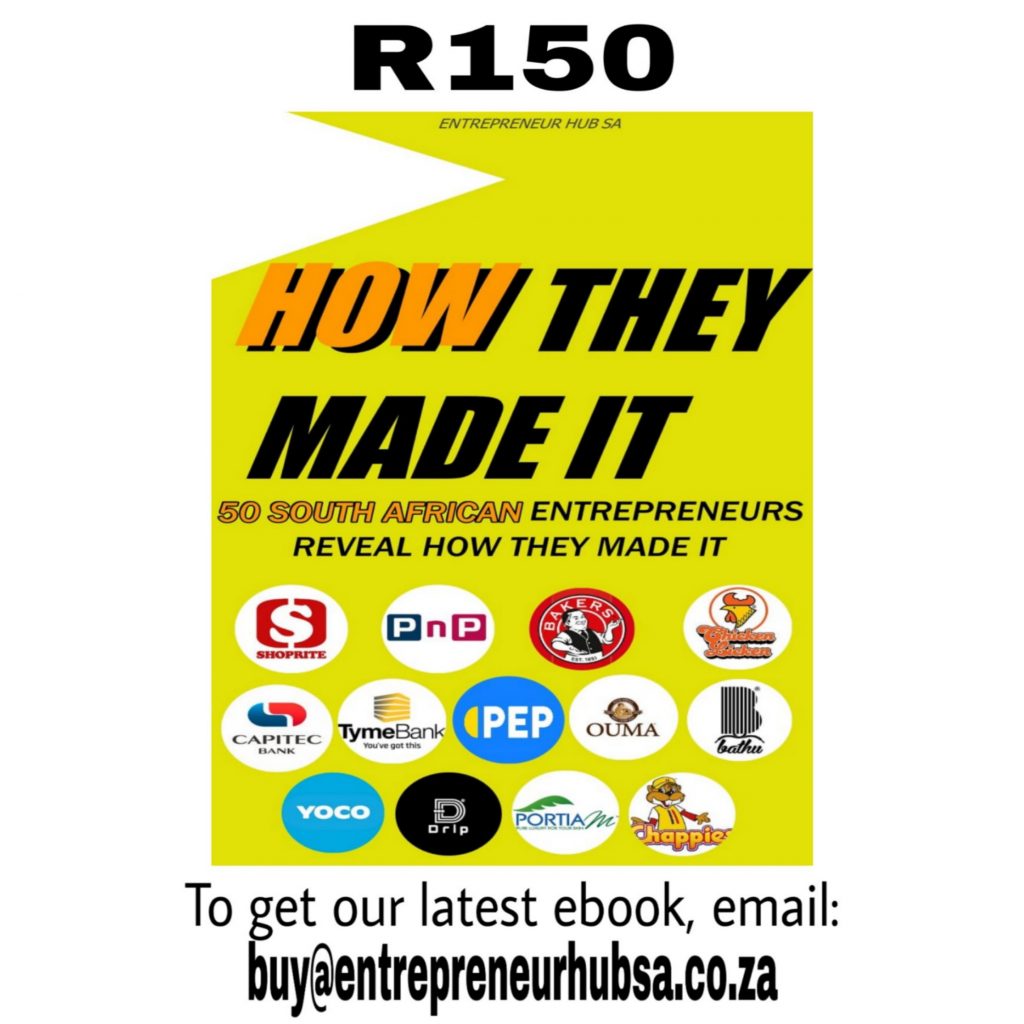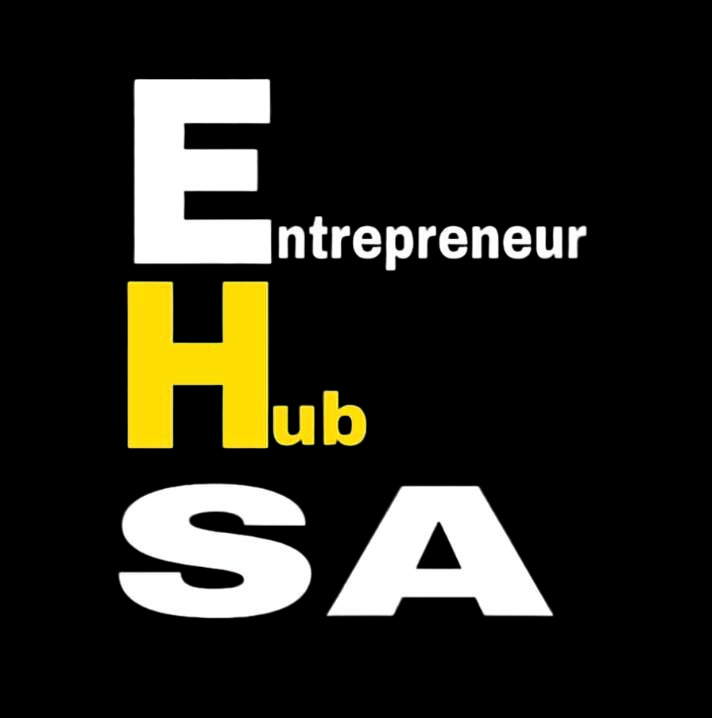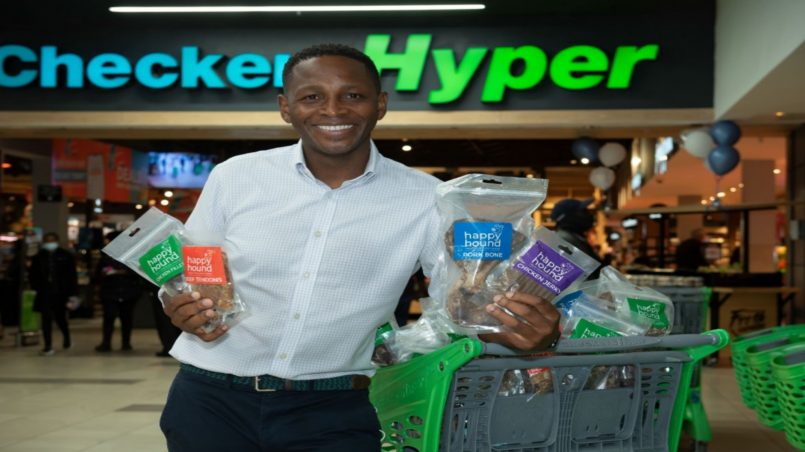Nhlanhla Dlamini initially wanted to export South African meat into the US but finding the approvals to get the proteins into the target markets for human consumption proved to be a tedious and expensive process, so he pivoted his business idea towards pets.
“A few things made me pivot in 2015 from the human market [meat for human consumption] to the pet market… There are less established players; it’s less political and allows for more new entrants.”
Getting there wasn’t no easy feat, it took hard slog and sussed expertise to ensure success or, as Dlamini explained, the “three “P’s”:
- Personal commitment
- Personnel assimilation
- Persuasion of investors
Today, Maneli Pets exports food and treats to 12+ markets and has even expanded its reach in SA with three of its own brands.
Background

After finishing up his studies at the University of Witwatersrand, Oxford and Harvard, Dlamini went on to work for Morgan Stanley and McKinsey & Company.
He saw how the pace of industrialisation and the manufacturing capacity in SA lagged behind developed countries and felt it presented an opportunity in agribusiness.
“While South Africa has extraordinary proteins produced through animal husbandry, the country wasn’t exporting much,”
However, getting meat into the US for human consumption wasn’t gonna be easy. A strong farmer lobby group ensured regulations were put in place to protect their interests and would impact the possible success of a start-up, especially of the nature Dlamini wanted to embark on.
“I was trying to export biltong products and frozen meats into the United States, but the negotiations to achieve this would have been at a much higher level than I could manage.”
Maneli Pets

A friend from Harvard Business School(HBS) had an uncle in the pet food industry who lamented on the lack of diversity in the products available on the market, this sparked Dlamini with the idea to focus on pets. He realized the unique proteins found in his home country (e.g. ostrich, crocodile and venison) were the perfect solution to address the clear hole in the market.
“In 2015, I began to investigate this further.”
Dlamini went back to South Africa and spent six months looking for a factory that he could rent and repurpose for operations. Alongside a co-founder, Siphamandla Ndawonde, they realised they would need to build a factory from the ground up and it would require huge amounts of start-up capital.
“We approached more than 100 investors and eventually succeeded with the IDC and the Department of Trade and Industry’s Black Industrialist Scheme. A 2% success rate can make you question yourself but nonetheless, you just have to persevere.”
Having secured funding, construction commenced in Isando just outside Johannesburg. Around the same time, Dlamini started searching for customers.
He rented a small space where they created samples of the products Maneli Pets wanted to export. These products were dispatched with some indicative pricing to secure off-take agreements once the new facility was commissioned.
“I was designing process flows, costing it out and creating prototypes using venison & ostrich and consulting YouTube videos on how to create certain pet treats.”
The HBS classmate’s uncle proved to be a valuable connection as he was the first port of call for many of the shipped samples, distributing these to his contacts in the US. Dlamini didn’t stop, he also searched on the internet to find attendee lists of the biggest international pet trade shows.
“I would download a list of attendees and exhibitors and search for their contact details. After shipping a sample, I would follow up with an email to explain they were a good fit for what we were trying to do and that I was looking forward to their feedback once they received the sample.
With cold calling, the success rate is often low. I simply followed up consistently until I got a confirmed no and moved on.”
In-House Brands
After the factory was commissioned, Maneli Pets manufactured white-label products for other brands and retailers but after doing that for an extended period, they opted to create their own brands in order to have more business control.
The first brand was called Nandi, after the Zulu word ‘mnandi’ which means delicious, the brand is also exported to 12+ different markets and still remains the company’s premium line. Over time, two others have been added: Munchies and Happy Hound.
American Swiss: How A Small Family Business Grew Into A Large Corporation
Shoprite Holdings

Maneli Pets initially struck a deal to supply the first Petshop Science, subsidiary of Shoprite Holdings, located in the Fairbridge Mall in Brackenfell, and its Happy Hounds products sold out within the first weekend.
“The initial plan was to slowly start supplying more Checkers and Petshop Science stores, but the enthusiasm for his products rapidly changed these plans.”
“We were meant to grow at five stores a quarter, but within roughly eight months, we were in over 270 Checkers supermarkets nationwide. Our Happy Hound products are now also available via Petshop Science online.”
Expansion
For the short- to medium-term future, Dlamini believes growth opportunities remain in South Africa as the world recovers from the pandemic and logistics channels normalise.
“We are excited about the next two to five years for the domestic market. We have seen decent growth with two of the bigger retailers as more people realise our treats are an affordable, more natural alternative to what is available.”
In the long term, starting around 2023, Maneli Pets will once again focus on expanding its export markets.
Why’s MaXhosa So Expensive?? Here’s The Most Detailed Answer
Future plans??
“I want to build Maneli Pets into a truly South African success story. I want it to sit alongside local brands such as Discovery and Nando’s, and the esteem they have internationally.”
Get South Africa’s latest entrepreneurial or business success stories delivered right to your inbox — Sign up to Entrepreneur Hub SA’s newsletter today ⬇️⬇️⬇️

eBook: 50 South African Entrepreneurs Reveal HOW THEY MADE IT




